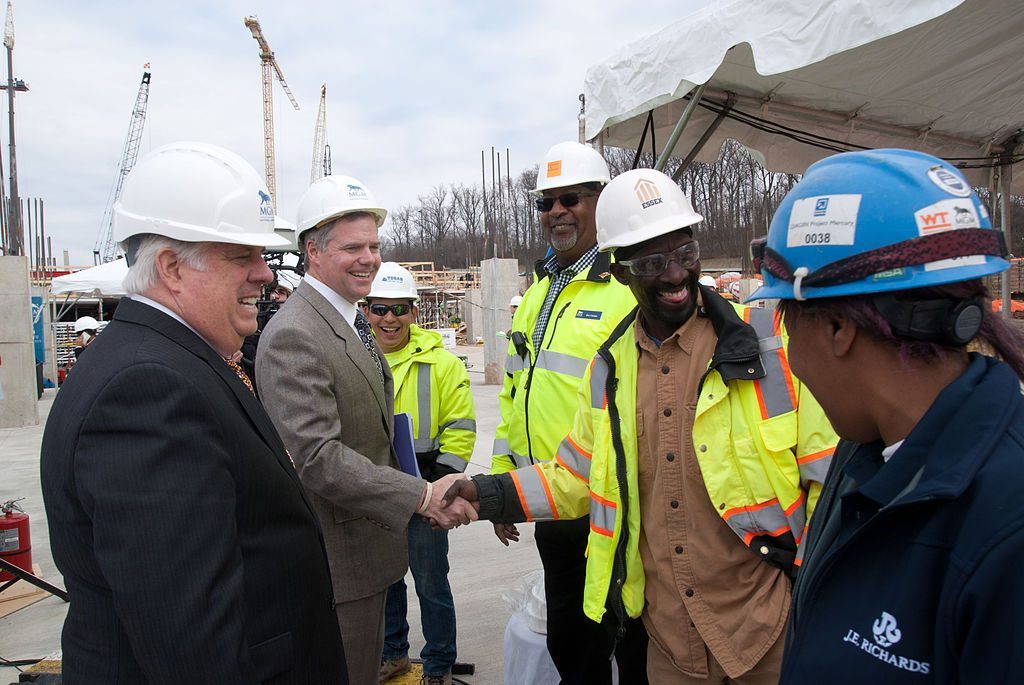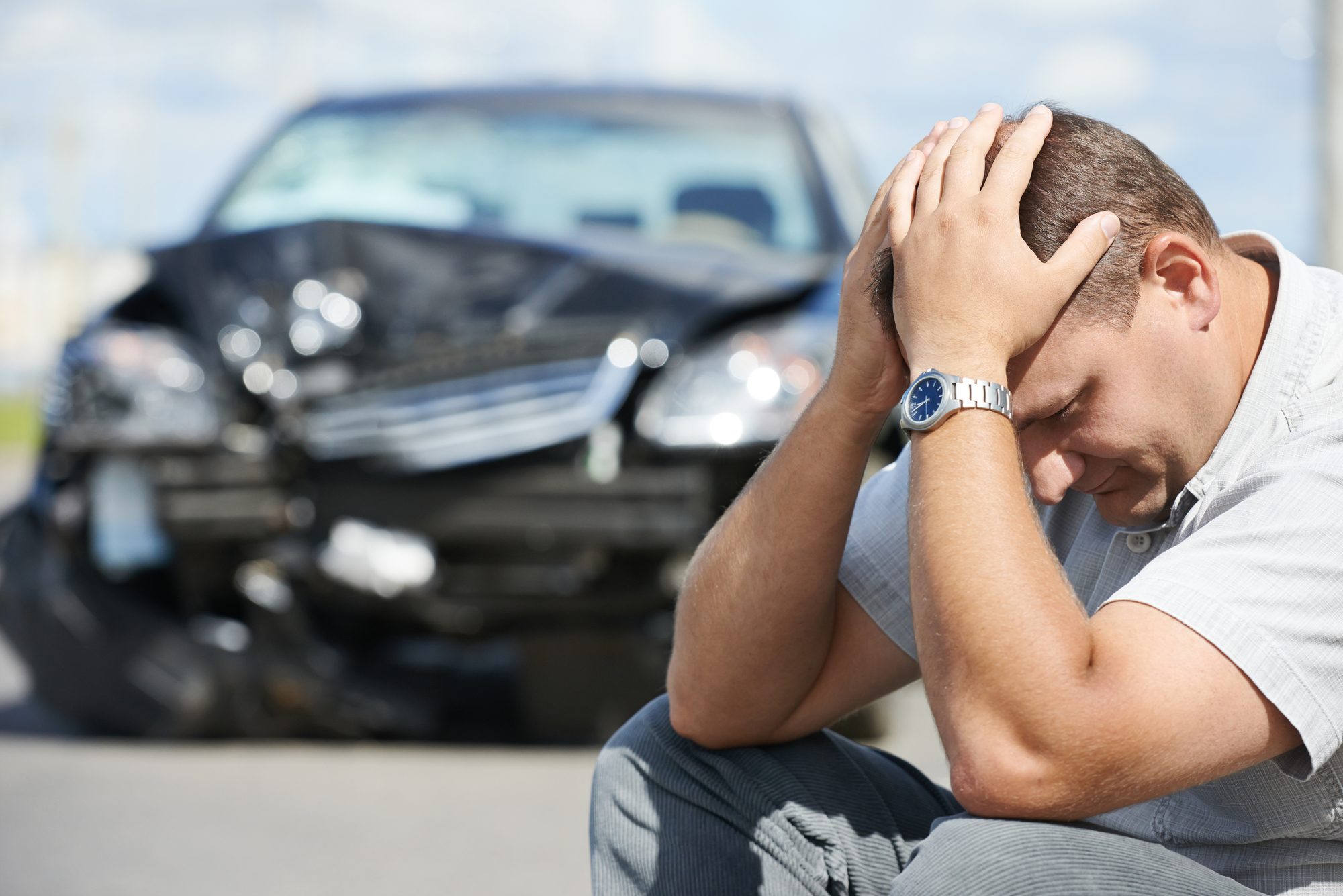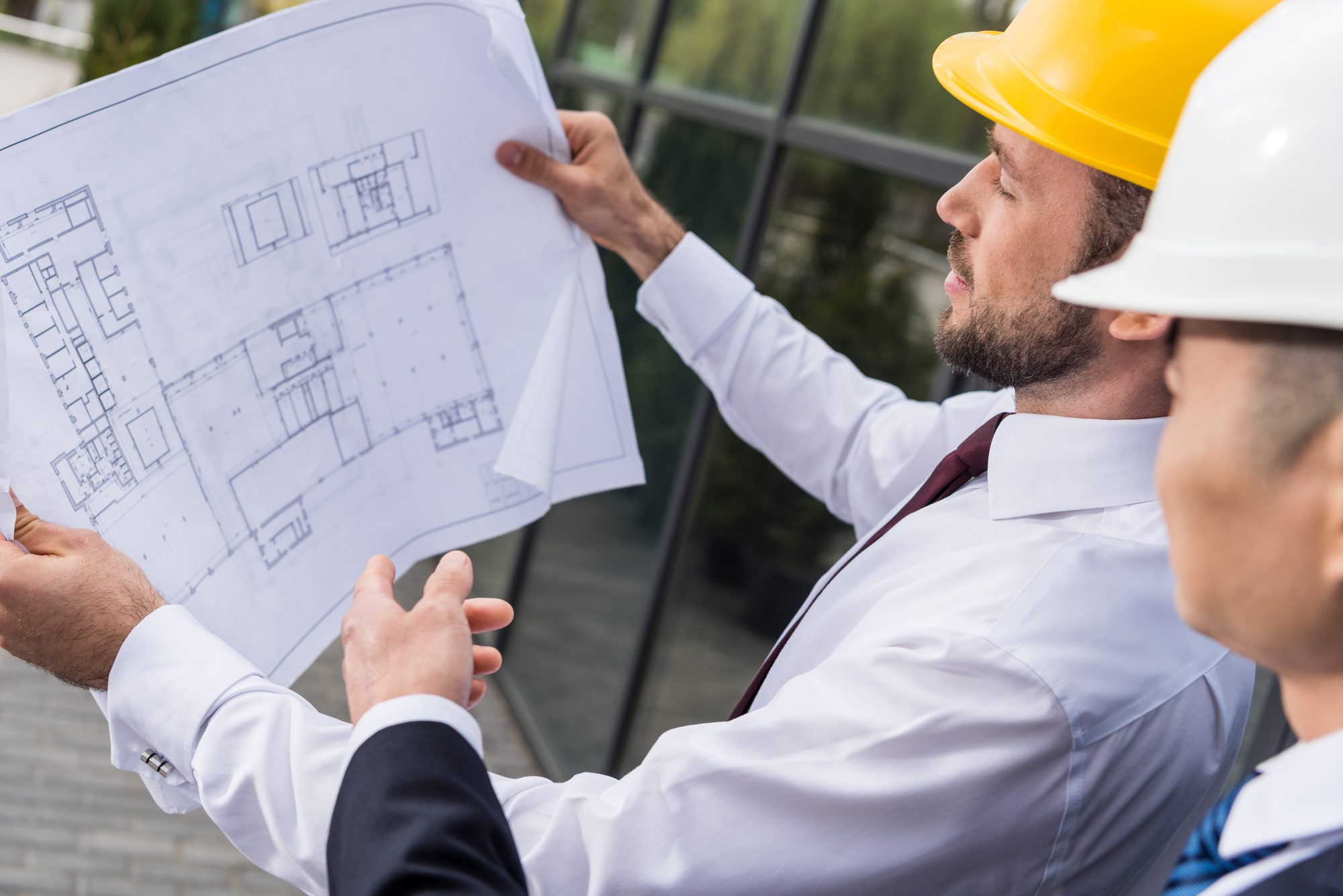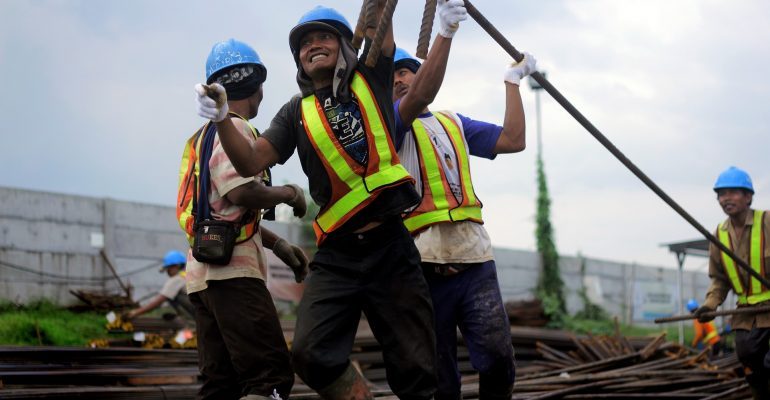Construction Insurance
General Liability Insurance
What General Liability Insurance Covers
Whether you’re a general contractor with $10 million in annual revenue or a small subcontracting firm, you need general liability insurance to protect your business assets in the event you are liable for a personal injury, property damage or medical expenses claim. The backbone of your insurance coverage, a general liability policy can help your business stay afloat even if you are faced with a long and very costly lawsuit.
General liability insurance offers construction businesses a broad range of protections for many different types of risk. Here is a summary of the types of claims you might encounter during normal business operations and how general liability insurance keeps your assets safe.

Please contact us at any of these contacts below and we will contact you shortly.
Why Choose Us
Bodily Injury & Medical Claims
The construction business is rife with risks, and accidents will happen no matter how safety conscious you and your employees are. A visitor to your job site may trip and fall over a stray piece of rebar, or a homeowner checking the progress of a renovation project could be injured by falling debris. These types of incidents can and often do lead to bodily injury claims and, in some cases, civil lawsuits.
In the event your business is responsible for injuries sustained by a third party, general liability insurance will pay their medical and rehabilitation expenses and your legal and defense costs if you are sued. It will also cover compensatory damages awarded by the courts. In the event someone dies as a result of an injury, their funeral expenses will be covered as well.
Tip: On-the-job injuries are not covered under a general liability policy. You must purchase separate Worker’s Compensation insurance to protect your employees.
Personal & Advertising Injury
Personal injury claims arise when a third party accuses you of defamation — false or misleading statements that damage their reputation in some way. For example, if one of your employees writes a post on Facebook that accuses your competitor of using substandard building materials and not complying with construction codes, the competitor could sue you for libel. If the employee made those remarks aloud in a crowded restaurant, the competitor could sue you for slander.
Advertising injury claims may arise if your company “misappropriates” another construction company’s advertising ideas or “style of doing business,” or uses it’s copyrighted materials as your own. For example, if M&M Construction Company has been using the slogan “Doing Construction Right!” for 10 years, and you appropriate the slogan for your business, a lawsuit might ensue.
In each of these cases, your general liability policy would provide coverage for your defense costs, including legal and attorney’s fees. It would also pay any damages awarded by the courts, up to the limits of your policy.
Property Damage Claims
Property damage claims may revolve around any incident that causes damage to a client’s property or renders it unfit for use. This coverage is typically limited to “occurrences, which are defined, in general, as “accidents, including continuous or repeated exposure to substantially the same general harmful conditions.” For example, if a roofing contractor fails to secure flammable materials, and this lapse causes a building to catch fire, his general liability insurance would cover the property damage as well as any expenses incurred by the property owner (such as rent or housing costs) while the building was being repaired.
Completed Products Claims
This coverage protects your assets in the event a client sustains property damage or personal injury after your work is complete. For example, if you install a ceiling fan in a client’s dining room, and two months after you complete the project the fan falls down, your general liability policy would pay to repair any damage to the client’s property that occurred as a result. The coverage would also cover medical expenses if someone was injured by the falling fan, as well as the costs of defending a lawsuit if the client took you to court.
Tip: The courts have generally upheld that liability claims related to faulty workmanship are not covered under a general liability policy because the consequences of faulty workmanship are predictable, and, therefore, not an accident.
Get In Touch
PHONE: (516) 292.3780 FAX: (516) 908.7879
Address
Corporate Headquarters
100 DUFFY AVENUE SUITE 510 HICKSVILLE, NY 11801
Georgia Branch
1230 PEACHTREE ST. NE 19TH FLOOR ATLANTA, GEORGIA 30309
Email Us
INFO@GRANDBAYFINANCIAL.COM
Workers Compensation
How Worker’s Compensation Protects You
Worker’s compensation insurance also protects you — the employer — from potentially catastrophic lawsuits. Just Imagine if one of your workers fell from a 15-foot scaffold, sustaining injuries that left him permanently disabled and unable to work. If the worker sued you for negligence and won, your company could be on the hook for hundreds of thousands of dollars in damages, even with Worker’s Compensation in place. If the employee died as a result of his injuries, you could also be sued by his survivors for wrongful death. Whether or not you ultimately prevailed in court, your legal costs could be devastating.
Fortunately, most Worker’s Compensation policies include Employer’s Liability coverage, which helps defray the cost of defending a lawsuit arising from an employee’s injuries.
Tip: In most states in the U.S., worker’s compensation insurance is mandated by state law; however, specific requirements vary greatly from state to state. To make sure that you are complying with your state’s requirements, contact an insurance professional at Grandbay Financial Services.

Please contact us at any of these contacts below and we will contact you shortly.
COMMERCIAL UMBRELLA INSURANCE
What Umbrella Insurance Covers
Umbrella insurance is also called Excess Liability coverage because it increases the limits of your existing liability coverage substantially. Usually available in increments of $1 million, it is relatively inexpensive way to get additional coverage across several product lines.
Commercial umbrella insurance is very useful coverage for construction professionals. For example, it can boost your business’ existing coverage so you can qualify for bigger and more lucrative construction contracts that require higher liability limits than your current policy provides. It can also increase the coverage limits on your general liability, employer’s liability and business automobile policies to substantially reduce your financial exposure in some common insurance claims.
Please contact us at any of these contacts below and we will contact you shortly.
Why Choose Us
General Liability Claims
General liability insurance protects your assets from many types of risk, but policy limits may still leave you exposed to substantial losses if a catastrophic accident should occur. Say, for example, one of your employees is operating a forklift and drops a palette of hardwood flooring, killing a passerby. Would your current policy limits be adequate to cover the legal proceedings that might ensue? Probably not.
Employer’s Liability Claims
Employer’s liability insurance helps pay your legal and defense costs if you are sued by an employee who was injured on the job. But in the event of a truly catastrophic injury that results in lengthy litigation, the limits of your Employer’s Liability coverage may very well be too low to cover even a substantial portion of your legal fees.
Commercial Auto Claims
Motor vehicle accidents are among the most common and most costly claims construction professionals face. Whether you or an employee is behind the wheel, if a truck you own plows into a schoolyard and injures 12 children, the bodily injury, medical and property damage claims will be astronomical, and you are liable to be sued as well.
Get In Touch
PHONE: (516) 292.3780 FAX: (516) 908.7879
Address
Corporate Headquarters
100 DUFFY AVENUE SUITE 510 HICKSVILLE, NY 11801
Georgia Branch
1230 PEACHTREE ST. NE 19TH FLOOR ATLANTA, GEORGIA 30309
Email Us
INFO@GRANDBAYFINANCIAL.COM
COMMERCIAL AUTO INSURANCE
What Commercial Auto Insurance Covers
Whether you own a big construction firm with a large fleet of commercial vehicles or you’re a small subcontractor who uses your own car for work, you need commercial auto insurance to protect your assets in the event you or an employee is involved in a crash. Your personal auto insurance generally will not cover any accident that occurs while your vehicle is being used for business purposes, even if that vehicle is your personal automobile.
Let’s say you’re driving your pickup truck loaded with building materials down a busy freeway, and someone stops short in front of you. You crash into the other vehicle, and the materials in the truck bed spill all over the freeway, causing three other cars to crash. Your personal auto insurance will cover the damages because you are driving your own truck — right?
Not necessarily. If you were simply driving your truck to a job site, your personal insurance would pay for your damages because you were simply travelling to work. But because you were transporting building materials in your truck, you were already working, so it’s unlikely that your personal insurance will pick up the tab. That means you’re on the hook for the damage to your truck; the damage to all the other vehicles; and any medical or legal claims that ensue.
A commercial auto insurance policy reduces your financial exposure in the event a vehicle you own is involved in an accident while you or an employee is working for your firm. In most cases, your policy will cover:

Please contact us at any of these contacts below and we will contact you shortly.
Why Choose Us
Medical Expenses
A commercial auto insurance policy will pay the medical expenses for you or an employee who is injured in a wreck while working for your construction firm. It will also pay the medical expenses for anyone who is injured in a crash for which you were at fault. Say, for example, a worker is driving a vehicle your firm owns and jumps a divider, severely injuring the driver of another car. Your commercial auto insurance policy will pay the other driver’s medical bills up to the limits of your policy.
Physical Damages
Construction vehicles are expensive. Even a fairly light-duty 2016 Ford F-350 costs about $34,000, and a big commercial pickup can cost upwards of $55,000 brand new. A commercial auto insurance protects your investment with physical damage coverage that will pay to repair or replace your vehicle if you it’s damaged in a work-related crash. If you buy comprehensive coverage, it will also pay if your vehicle is stolen, vandalized or destroyed in a natural disaster.
Legal claims
One of the most costly outcomes of any motor vehicle accident can be a lengthy and expensive lawsuit. Let’s say one of your workers is driving a truck you own and crashes into someone’s home, injuring the homeowner and causing thousands of dollars in damage to the house and yard. Your commercial auto insurance will pay to repair the structure and pick up the homeowner’s medical bills. It will also help defray your legal costs if the homeowner later sues your construction firm for negligence.
Tip: Consider purchasing uninsured motorist coverage If your employees use their personal vehicles while working for your construction firm. If they have inadequate personal insurance (or no insurance at all) your business could be held liable for a portion or all of the damages if they are involved in a crash.
Get In Touch
PHONE: (516) 292.3780 FAX: (516) 908.7879
Address
Corporate Headquarters
100 DUFFY AVENUE SUITE 510 HICKSVILLE, NY 11801
Georgia Branch
1230 PEACHTREE ST. NE 19TH FLOOR ATLANTA, GEORGIA 30309
Email Us
INFO@GRANDBAYFINANCIAL.COM
BUILDER'S RISK INSURANCE
What A Builder’s Risk Policy Covers
Also known as a Course of Construction policy, Builder’s Risk insurance helps contractors and construction professionals avoid costly delays by ensuring a quick resolution to property claims that occur while a project is underway. The policy typically covers all property at a construction site, including equipment, materials, and supplies. Property that is stored off-site and property in transit are typically covered as well.
Suppose your construction company is mid-way through a major home renovation, and a fire destroys the home. You lose your work-in-progress, including all of your materials, as well as some of your equipment and your tools. Under most commercial property insurance policies, none of your losses would be covered because the damage occurred “off-site.”
Builder’s Risk policies cover many natural and manmade perils, theft and vandalism that occur at a construction site, while materials are in transit, or at the location where materials and equipment are stored. Specific coverages usually include the following:

Please contact us at any of these contacts below and we will contact you shortly.
Why Choose Us
Theft of tools and equipment
A commercial auto insurance policy will pay the medical expenses for you or an employee who is injured in a wreck while working for your construction firm. It will also pay the medical expenses for anyone who is injured in a crash for which you were at fault. Say, for example, a worker is driving a vehicle your firm owns and jumps a divider, severely injuring the driver of another car. Your commercial auto insurance policy will pay the other driver’s medical bills up to the limits of your policy.
Fire Damage
Construction vehicles are expensive. Even a fairly light-duty 2016 Ford F-350 costs about $34,000, and a big commercial pickup can cost upwards of $55,000 brand new. A commercial auto insurance protects your investment with physical damage coverage that will pay to repair or replace your vehicle if you it’s damaged in a work-related crash. If you buy comprehensive coverage, it will also pay if your vehicle is stolen, vandalized or destroyed in a natural disaster.
Vandalism
One of the most costly outcomes of any motor vehicle accident can be a lengthy and expensive lawsuit. Let’s say one of your workers is driving a truck you own and crashes into someone’s home, injuring the homeowner and causing thousands of dollars in damage to the house and yard. Your commercial auto insurance will pay to repair the structure and pick up the homeowner’s medical bills. It will also help defray your legal costs if the homeowner later sues your construction firm for negligence.
Tip: Consider purchasing uninsured motorist coverage If your employees use their personal vehicles while working for your construction firm. If they have inadequate personal insurance (or no insurance at all) your business could be held liable for a portion or all of the damages if they are involved in a crash.
Weather Events
Most Builder’s Risk policies provide coverage for weather related events, such as a rainstorms, windstorms and the like. So if a severe hailstorm damages a building you’re renovating, your Builder’s Risk policy will pay to repair the damage. However, the policy cover major typically does not cover weather-related disasters, such as tornadoes, hurricanes, earthquakes and floods. If you are working in an area where these events occur regularly, speak with Grandbay Financial Services agent about adding additional coverage for that specific type of risk.
Get In Touch
PHONE: (516) 292.3780 FAX: (516) 908.7879
Address
Corporate Headquarters
100 DUFFY AVENUE SUITE 510 HICKSVILLE, NY 11801
Georgia Branch
1230 PEACHTREE ST. NE 19TH FLOOR ATLANTA, GEORGIA 30309
Email Us
INFO@GRANDBAYFINANCIAL.COM
COMMERCIAL PROPERTY INSURANCE
How Commercial Property Insurance Works
Commercial property insurance covers your business premises and the equipment, inventory and machinery housed there. For example, if your office and attached warehouse were to go up in flames, your property insurance would pay to rebuild the structures and replace or repair any items damaged in the fire. Covered items typically include office machinery, building materials and supplies, heavy equipment and personal possessions. Any items left in your care by a third party would be covered as well.
Tip: Commercial property insurance covers business property housed at the address shown on your policy. It does not cover items in transit or items at a construction site. Ask your Grandbay Financial Services agent about Builder’s Risk Insurance and an Equipment Floater to help protect against these risks.

Please contact us at any of these contacts below and we will contact you shortly.
Why Choose Us
Replacement Value Versus Actual Cash Value
An important distinction in property insurance policies is whether the insurer will reimburse you for the actual cash value of your property or the amount it will cost you to replace it after a loss. Obviously, replacement value is preferable from your point of view: If your five-year-old backhoe is destroyed in a fire, a new one will cost you more than the old one was worth. However, insurers often prefer to reimburse losses based on actual cash value (calculated as replacement value minus depreciation.)
When you’re buying property insurance, talk to your Grandbay Financial Services agent about the pros and cons of both types of coverage. Typically the premiums on a policy that reimburses the replacement value of your property will be more expensive, but it may save you money in the long run if you suffer a significant loss.
Business Interruption Coverage
Most property insurance policies provide Business Interruption coverage, which helps to replace your lost revenue when your operations come to a temporary halt due to a covered event (for example, a fire or flood.) Business Interruption coverage also helps pay operational costs, such as renting new office space or transporting construction equipment to a storage facility while your premises are being rebuilt.
Expenses usually covered by Business interruption insurance include:
- Relocation costs
- Lost income
- Payroll expenses for employees who continue to work
- Operational expenses that continue even when business operations are temporarily on hold (for example, property taxes, rent and insurance costs)
Business Interruption insurance usually does not cover:
- Expenses that exceed what you were paying before the event occurred: For example, if you need to relocate your office to a building where the rent is $1,000 more per month than you were paying before, the insurance will only reimburse you for the amount of your previous rent.
- Rebuilding costs in excess of the estimated amount
- Costs associated with lost power: If a major storm knocks out the power to your office and your staff can’t come to work for a week, your business interruption coverage typically won’t cover your lost revenue or expenses.
- Losses associated with a business interruption in your supply chain.
- Losses associated with interruption in provider services: For example, if your website is offline for a week because your hosting company’s servers were destroyed in a hurricane, your business insurance will not cover your loss.
Tip: There is usually a waiting period before business interruption coverage kicks in, so it’s a good idea to have enough cash reserves to sustain operations for two to three days.
Get In Touch
PHONE: (516) 292.3780 FAX: (516) 908.7879
Address
Corporate Headquarters
100 DUFFY AVENUE SUITE 510 HICKSVILLE, NY 11801
Georgia Branch
1230 PEACHTREE ST. NE 19TH FLOOR ATLANTA, GEORGIA 30309
Email Us
INFO@GRANDBAYFINANCIAL.COM
EQUIPMENT FLOATER
How Equipment Floater Insurance Works
An Equipment Floater is an endorsement to the your property insurance that protects machinery and tools in transit as well as equipment stored at a construction site. The equipment floater usually covers non-stationary items that are less than five years old, including items such as:

Please contact us at any of these contacts below and we will contact you shortly.
Why Choose Us
Heavy Equipment
Bulldozers, Forklifts, Tractors, Backhoes, Draglines, Caterpillars
Compressors
Air compressors, Welders, Pumps
Portable equipment
Electric drills, Hand Tools, Skill Saws, Jackhammers
Road Machinery
Graders, Ditchers, Rollers, Tractors. In some cases the policy will also cover tools and machinery belonging to your employees and equipment you rent out.
Like a Builder’s Risk policy, the Equipment Floater will replace or repair your tools and machinery in the event they are stolen, lost or damaged in an accident (either in transit or at the construction site).
Get In Touch
PHONE: (516) 292.3780 FAX: (516) 908.7879
Address
Corporate Headquarters
100 DUFFY AVENUE SUITE 510 HICKSVILLE, NY 11801
Georgia Branch
1230 PEACHTREE ST. NE 19TH FLOOR ATLANTA, GEORGIA 30309
Email Us
INFO@GRANDBAYFINANCIAL.COM
DISABILITY INSURANCE
How Disability Insurance Works
As a construction professional, you know that workplace injuries are common in your industry, and you carry worker’s compensation insurance to help defray the medical bills and lost wages of any employee who is injured on the job. But what happens if an employee is injured at home or falls seriously ill and can’t work for an extended period of time? What would happen if you became ill or were injured in a car crash and couldn’t work for months or even years? How would you support yourself and your family with no income coming in?
Some states** offer short-term disability insurance that helps sick or injured individuals who are temporarily unable to work. So if you or one of your employees slid into first base at the company picnic and broke your arm, your state’s short-term disability would help pay part of your salary while you were unable to work. However, these benefits are time limited (usually 26 weeks) and don’t come close to paying what most families need to pay the bills. New York state, for example, pays 50 percent of a worker’s base rate of pay up to a maximum of $170 per week, or $680 per month. California pays 55 percent of the person’s base wages up to a maximum of $1129 per week. Most states pay nothing at all.
** California, Hawaii, New Jersey, New York, Rhode Island, and Puerto Rico

Types of Disability Insurance
Depending on the policy and the policy limits you choose, disability benefits pay all or part of a workers (or your) salary when he is unable to work due to a covered disability. There are several different types of coverage available, including:
Please contact us at any of these contacts below and we will contact you shortly.
Why Choose Us
Accident-only Disability
which pays a portion of the worker’s wages if he is injured in an accident (for instance, a fall from a ladder while painting his home). Benefits are typically capped at a specific dollar amount each month.
Short-term Disability
which pays a portion of the worker’s wages if he is injured in a non-work related accident or becomes seriously ill and unable to work. Short-term disability is, by definition, time-limited: Coverage periods are typically between three and 24 months, and monthly benefits are capped.
Long-term Disability
is the most comprehensive disability coverage, and is designed to assist workers who are either permanently disabled by an accident or very seriously ill. Benefits are usually payable for as long as the worker is disabled or until he reaches 67 years of age. Monthly benefits are still capped, but the benefit amount is typically higher than that of short-term disability. There is, however, a waiting period before benefits kick in. Depending on the policy, this can be as little as 60 days or as long as one year.
Business Overhead Expense Insurance
This is designed for construction business owners who are ill or injured and unable to work. Say, for example, you are seriously hurt in a car wreck and are in the hospital for several months. Your health insurance will pay your medical bills, and your disability insurance will replace a portion of your income. But will you have enough cash on hand to pay your workers’ salaries and buy the materials you need to complete your ongoing construction projects on time? What about rent on your office space, taxes, interest on business loans and utilities?
Business overhead expense will help you meet all of these expenses for a period of time specified in your policy. The amount of coverage offered and the coverage period varies, so talk to an agent at Grandbay Financial Services to discuss your needs.
Tip: Consider purchasing uninsured motorist coverage If your employees use their personal vehicles while working for your construction firm. If they have inadequate personal insurance (or no insurance at all) your business could be held liable for a portion or all of the damages if they are involved in a crash.
Get In Touch
PHONE: (516) 292.3780 FAX: (516) 908.7879
Address
Corporate Headquarters
100 DUFFY AVENUE SUITE 510 HICKSVILLE, NY 11801
Georgia Branch
1230 PEACHTREE ST. NE 19TH FLOOR ATLANTA, GEORGIA 30309
Email Us
INFO@GRANDBAYFINANCIAL.COM
CONTRACTOR'S POLLUTION LIABILITY INSURANCE
What Contractor’s Pollution Liability Covers
One of the many hazards associated with the construction industry is the accidental release of pollutants into the ground, groundwater or atmosphere. However, most commercial general liability policies specifically exclude these types of events. Contractor’s pollution liability insurance fills this coverage gap.
Contractor’s pollution liability provides third party coverage for bodily injury or property damage related to a polluting event. Say, for example, your contracting firm was excavating a site for a new strip mall in a residential neighborhood, and you accidentally ruptured an underground pipe carrying toxic chemicals to a treatment facility miles away. Hundreds of gallons of dangerous sludge seep into the ground before the pipe can be repaired. Your Contractor’s Pollution Liability insurance would pay to cleanup the spill and settle any bodily injury claims that ensued (up to the limits of your policy.) It would also pay your legal defense costs if you were sued.

Newsletter
Signup our newsletter to get update information, insight or news

